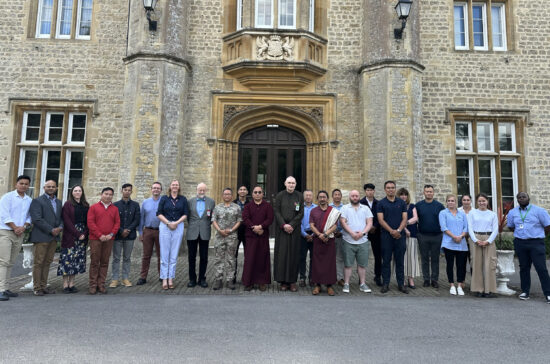Online Lecture - The Burma Campaign and the Transformation of the Indian Army

Raymond A. Callahan and Daniel Marston
Tuesday 16th April 1830 BST (ZOOM lecture)
In 1945 the Indian British XIV Army inflicted on the Imperial Japanese Army in Burma the worst defeat in its history. That campaign, the most brilliant and original operational manoeuvre conducted by any British general in the twentieth century, is presented in this lecture by the two foremost historians in the field. After the retreat from Burma in 1942, Lieutenant General Sir William Slim, commander of the British XIV Army, played a crucial role in the remarkable military renaissance that transformed the Indian Army. Then, with that reborn army, Slim won two defensive battles in 1944 and in the 1945 campaign shredded his Japanese opponents.
Behind this dramatic story was another: the war marked the effective end of the Raj. As Slim’s great victory signposted the change from the army Kipling knew, the praetorian guard of the Raj evaporated. ‘Every Indian officer worth his salt is a nationalist’, the Indian Army’s commander-in-chief Claude Auchinleck said as the XIV Army took Rangoon.
Raymond A. Callahan is Professor Emeritus of History, University of Delaware, and author of Triumph at Imphal-Kohima: How the Indian Army Finally Stopped the Japanese Juggernaut.
Daniel Marston is Professor of the Practice and the Director of the Secretary of Defense Strategic Thinkers Program, School of Advanced International Studies, Johns Hopkins University, and author of The Indian Army and the End of the Raj.
Professor Callahan and Professor Marston are authors of The 1945 Burma Campaign and the Transformation of the British Indian Army, winner of the Templer Medal Book Prize.




